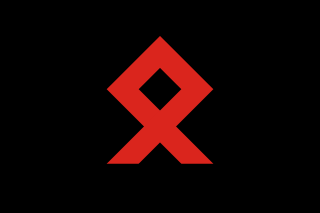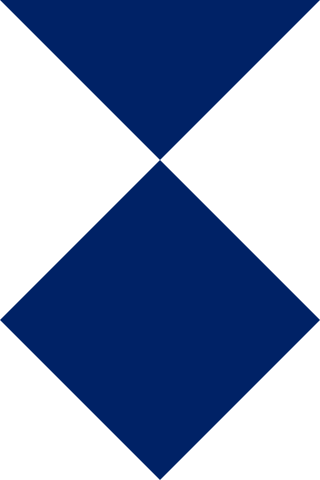The Masereelfonds, named after Frans Masereel, is a Flemish non-profit cultural organization, for the promotion and support of the Dutch language in Flanders (northern Belgium). It is one of a family of five cultural organizations in Flanders, such as the Davidsfonds, Vermeylenfonds, Willemsfonds, and the Rodenbachfonds. Traditionally it was related to the Belgian communist party, but nowadays it is a progressive cultural organization.

Flanders is the Dutch-speaking northern portion of Belgium and one of the communities, regions and language areas of Belgium. However, there are several overlapping definitions, including ones related to culture, language, politics, and history, and sometimes involving neighbouring countries. The demonym associated with Flanders is Fleming, while the corresponding adjective is Flemish. The official capital of Flanders is the City of Brussels, although the Brussels-Capital Region that includes it has an independent regional government. The powers of the government of Flanders consist, among others, of economic affairs in the Flemish Region and the community aspects of Flanders life in Brussels, such as Flemish culture and education.

The politics of Belgium take place in the framework of a federal, representative democratic, constitutional monarchy. The King of the Belgians is the head of state, and the prime minister of Belgium is the head of government, in a multi-party system. Executive power is exercised by the government. Federal legislative power is vested in both the government and the two chambers of parliament, the Senate and the Chamber of Representatives. The federation is made up of (language-based) communities and (territorial) regions. Philippe is the seventh and current King of the Belgians, having ascended the throne on 21 July 2013.

Belgium is a federal state comprising three communities and three regions that are based on four language areas. For each of these subdivision types, the subdivisions together make up the entire country; in other words, the types overlap.

"De Vlaamse Leeuw" is the official anthem of Flanders, a region and community in Belgium.

The Flemish Movement is an umbrella term which encompasses various political groups in the Belgian region of Flanders and, less commonly, in French Flanders. Ideologically, it encompasses groups which have sought to promote Flemish culture and Dutch language as well as those seeking greater political autonomy for Flanders within Belgium. It also encompassed nationalists who seek the secession of Flanders from Belgium, either through outright independence or unification with the Netherlands.

The Flemish Parliament constitutes the legislative power in Flanders for matters which fall within the competence of Flanders, both as a geographic region and as a cultural community of Belgium.

Flanders is both a cultural community and an economic region within the Belgian state, and has significant autonomy.

The Flemish Community is one of the three institutional communities of Belgium, established by the Belgian constitution and having legal responsibilities only within the precise geographical boundaries of the Dutch-language area and of the bilingual area of Brussels-Capital. Unlike in the French Community of Belgium, the competences of the Flemish Community have been unified with those of the Flemish Region and are exercised by one directly elected Flemish Parliament based in Brussels.
The Davidsfonds is a Catholic organisation in Flanders, Belgium with the purpose of promoting the Flemish culture in the areas of literature, history and art.
Flemish Sign Language is a deaf sign language of Belgium. It is closely related to French Belgian Sign Language, but they are now generally recognized as distinct languages. VGT is estimated to include around 6,000 sign-language users.

The Order of Flemish Militants – originally the Flemish Militants Organisation – was a Flemish nationalist activist group in Belgium defending far-right interests by propaganda and political action. Established in 1949, they helped found the People's Union in 1954, a Belgian political party. The links between the extremist VMO and the VU lessened as the party moved towards the centre. In later decades the VMO would become linked to neo-Nazism and a series of paramilitary attacks on immigrants and leftists before disappearing by the late 1980s.

The flag of Flanders, called the Vlaamse Leeuw or leeuwenvlag, is the flag of the Flemish Community and Flemish Region in Belgium. The flag was officially adopted by the Cultural Council for the Dutch Cultural Community in 1973, and later, in 1985, by its successor, the Flemish Parliament. In 1990, the coat of arms was also adopted as an official symbol.
The Willemsfonds, named after Jan Frans Willems, is a non-profit cultural organisation founded in the 19th century to promote Flemish culture and language in Belgium. In order to achieve this goal, the organisation encouraged Flemish folk song, organised linguistic games and published inexpensive Flemish books. In addition, the organisation established general libraries.
The Rodenbachfonds, named after Albrecht Rodenbach, is a Flemish non-profit and cultural foundation or "cultuurfonds" related to the Flemish movement. It is one of a family of five cultural foundations in Flanders, together with the Davidsfonds, Vermeylenfonds, Willemsfonds, and Masereelfonds.
The Day of the Flemish Community of Belgium is an annual commemoration in the Flemish Community in Belgium on 11 July which marks the anniversary of the Battle of the Golden Spurs (Guldensporenslag) in 1302.

The Duitsch-Vlaamsche Arbeidsgemeenschap, better known as DeVlag, was a small radical pro-Nazi organization active in Flanders during the German occupation of Belgium. It was founded in 1936 by academics Jef Van de Wiele and Rolf Wilkening as a cultural association, with the purpose of strengthening the exchange of students and professors between the universities of Leuven and Cologne.

The Flemish or Flemings are a Germanic ethnic group native to Flanders, Belgium, who speak Flemish Dutch. Flemish people make up the majority of Belgians, at about 60%.

Heritage registers in Belgium include immovable heritage such as World Heritage Sites, and National heritage sites, but also intangible cultural heritage. The agency responsible for keeping and updating inventories of immovable heritage is dependent on the region, as is the name for the object, which is called Beschermd erfgoed, Biens classés or Kulturdenkmal depending on the language of the municipality of the location.

Beschermd erfgoed is the official term to describe Flemish National Heritage Sites listed by law to protect and spread awareness of Belgian cultural heritage, specifically in Flanders. The term is also used nationwide to refer to national heritage sites. Because Belgium is officially a tri-lingual country, the other nationwide terms used in the rest of the country are the French term Bien classé and the German term Kulturdenkmal.

Flemish (Vlaams) is a Low Franconian dialect cluster of the Dutch language. It is sometimes referred to as Flemish Dutch, Belgian Dutch, or Southern Dutch. Flemish is native to Flanders, a historical region in northern Belgium; it is spoken by Flemings, the dominant ethnic group of the region. Outside of Belgium Flanders, it is also spoken to some extent in French Flanders and the Dutch Zeelandic Flanders.